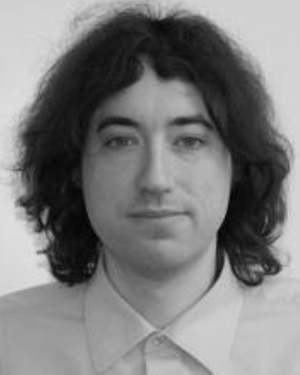Abstract:
The most critical parameter of audio and video information output is the playback speed, which affects many viewing or listening metrics, including when learning using tu...Show MoreMetadata
Abstract:
The most critical parameter of audio and video information output is the playback speed, which affects many viewing or listening metrics, including when learning using tutoring systems. However, the availability of quantitative models for personalized playback speed control considering the learner's personal traits is still an open question. The work aims to develop a model to control the personalized playback speed of audio information for beginners and experienced learners for intelligent tutoring systems. Analysis of the data from the experimental study using traditional machine learning methods did not allow us to classify the preferred playback rate with accuracy higher than 60%. Therefore, we developed the three-level hierarchical logistic model that predicts the preferred playback speed of audio material on the scale from “very low speed” to “high speed” for beginners and experienced learners with 80% accuracy. The model uses a combination of cognitive and psychomotor traits of individual learners and aims to maximize audio listening convenience and satisfaction. We explained the influence of the learners' selected personal traits on the preferred speed of audio playback. We calculated the convenience of listening to the audio materials without and with the model. By using the model, the convenience of listening to audio materials increased by an average of 13% at a low speech speed and 37% at a high speech speed. The model extends the control theory of multimedia information in e-learning systems by describing the influence of selected psychophysiological traits of learners on the preferred playback speed of audio materials.
Published in: IEEE Transactions on Learning Technologies ( Volume: 17)
Funding Agency:

HSE University, Moscow, Russia
A. N. Varnavsky was born in Ryazhsk City, Ryazan, Russia, in 1982. He received the qualification of an engineer in biotechnical and medical technologies and the degree of Candidate of Technical Sciences in the field of technical sciences specifically focusing on medical devices and systems, from the Ryazan State Radio Engineering Academy, Ryazan, in 2004 and 2008, respectively.
From 2010 to 2018, he was an Assistant Profes...Show More
A. N. Varnavsky was born in Ryazhsk City, Ryazan, Russia, in 1982. He received the qualification of an engineer in biotechnical and medical technologies and the degree of Candidate of Technical Sciences in the field of technical sciences specifically focusing on medical devices and systems, from the Ryazan State Radio Engineering Academy, Ryazan, in 2004 and 2008, respectively.
From 2010 to 2018, he was an Assistant Profes...View more

HSE University, Moscow, Russia
A. N. Varnavsky was born in Ryazhsk City, Ryazan, Russia, in 1982. He received the qualification of an engineer in biotechnical and medical technologies and the degree of Candidate of Technical Sciences in the field of technical sciences specifically focusing on medical devices and systems, from the Ryazan State Radio Engineering Academy, Ryazan, in 2004 and 2008, respectively.
From 2010 to 2018, he was an Assistant Professor at the Department of Automation of Information and Technological Processes, Ryazan State Radio Engineering University, Ryazan. Since 2018, he has been an Assistant Professor with the Department of Computer Engineering, National Research University Higher School of Economics, Moscow, Russia. He is the author of 1 book, more than 100 articles, and more than 20 inventions and patents. His research interests include adaptive algorithms, adaptation and personalization of e-learning systems, artificial intelligence in learning, data processing and analysis, and planning of experiments.
Dr. Varnavsky was a recipient of the Award “Young Scientist of the Year - 2014” named after Academician I.P. Pavlov, Ryazan, in 2015, and the Incentive Award for active participation in the development of space science and technology based on the results of a scientific-technical conference of the rocket-space corporation Energia named after S.P. Korolev, Korolev, Russia, in 2014, and the Award of the Union of Mechanical Engineers of Russia based on the results of the All-Russian Competition of Scientific Works “National Scientific and Technical Conference,” Moscow, in 2012.
A. N. Varnavsky was born in Ryazhsk City, Ryazan, Russia, in 1982. He received the qualification of an engineer in biotechnical and medical technologies and the degree of Candidate of Technical Sciences in the field of technical sciences specifically focusing on medical devices and systems, from the Ryazan State Radio Engineering Academy, Ryazan, in 2004 and 2008, respectively.
From 2010 to 2018, he was an Assistant Professor at the Department of Automation of Information and Technological Processes, Ryazan State Radio Engineering University, Ryazan. Since 2018, he has been an Assistant Professor with the Department of Computer Engineering, National Research University Higher School of Economics, Moscow, Russia. He is the author of 1 book, more than 100 articles, and more than 20 inventions and patents. His research interests include adaptive algorithms, adaptation and personalization of e-learning systems, artificial intelligence in learning, data processing and analysis, and planning of experiments.
Dr. Varnavsky was a recipient of the Award “Young Scientist of the Year - 2014” named after Academician I.P. Pavlov, Ryazan, in 2015, and the Incentive Award for active participation in the development of space science and technology based on the results of a scientific-technical conference of the rocket-space corporation Energia named after S.P. Korolev, Korolev, Russia, in 2014, and the Award of the Union of Mechanical Engineers of Russia based on the results of the All-Russian Competition of Scientific Works “National Scientific and Technical Conference,” Moscow, in 2012.View more


